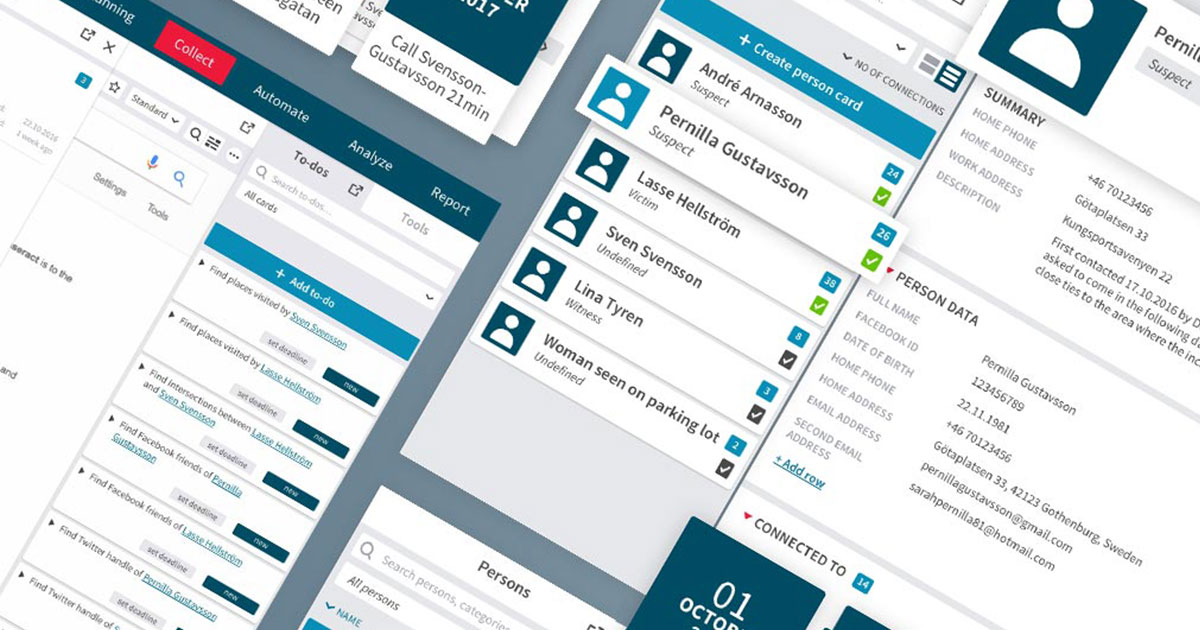8 things to look for in an online investigation tool
Open source intelligence (OSINT) is getting more and more important in any investigation – for everyone from law enforcement and journalists to insurance companies and large businesses.
More people share their information online than ever before and intelligence can be what decides how a case develops. Here are the 8 most important things to keep in mind when you’re selecting a tool for your online investigations.

1. You need the right information at the right time
There are a lot of tools out there so make sure you use the right ones. Look for tools that give you the correct information quickly and easily. But be skeptical about all information until it is verified.
2. Use a tool that helps you stay focused
It might seem obvious but you’ll need to plan your investigation and set up goals. Because if you just start browsing the Internet with no clear focus it’s very easy to get lost in all the information that is out there. As a result, you also need to use tools that support you in setting up your plan, keeping track of it and making sure you don’t miss any steps.
3. You want structured and secure information
The information you collect should be stored in a structured and secure way, so it is easy to find it and also the integrity of the data is kept intact.
4. Easy data collection pays off
Make sure the information you find can be easily collected to your data storage. If collection is seamless, your investigation will go much faster and frustration can be avoided.
5. Be able to track the evidence
Online information is very diverse and changes all the time. So it‘s very important to have an audit trail that can prove that the information collected was there at that specific time.
6. Keep case information separate
Don’t risk your investigation with information that is contaminated – use a tool that keeps your cases separate from each other.
7. Make sure you’re GDPR-compliant
The General Data Protection Regulation covers how governments, companies and organizations are allowed to handle personal data. When you are running an investigation, you will handle and store personal data, so it’s very important that you can edit or delete this data if it’s required by the GDPR. Otherwise, you can risk fines of up to 20 million euros or even higher.
8. Create a clean and professional report
Last but not least, you’ll need to share the results of your investigation with others once it’s finished. So make sure you have a way to move the data to a report that can be shared.





